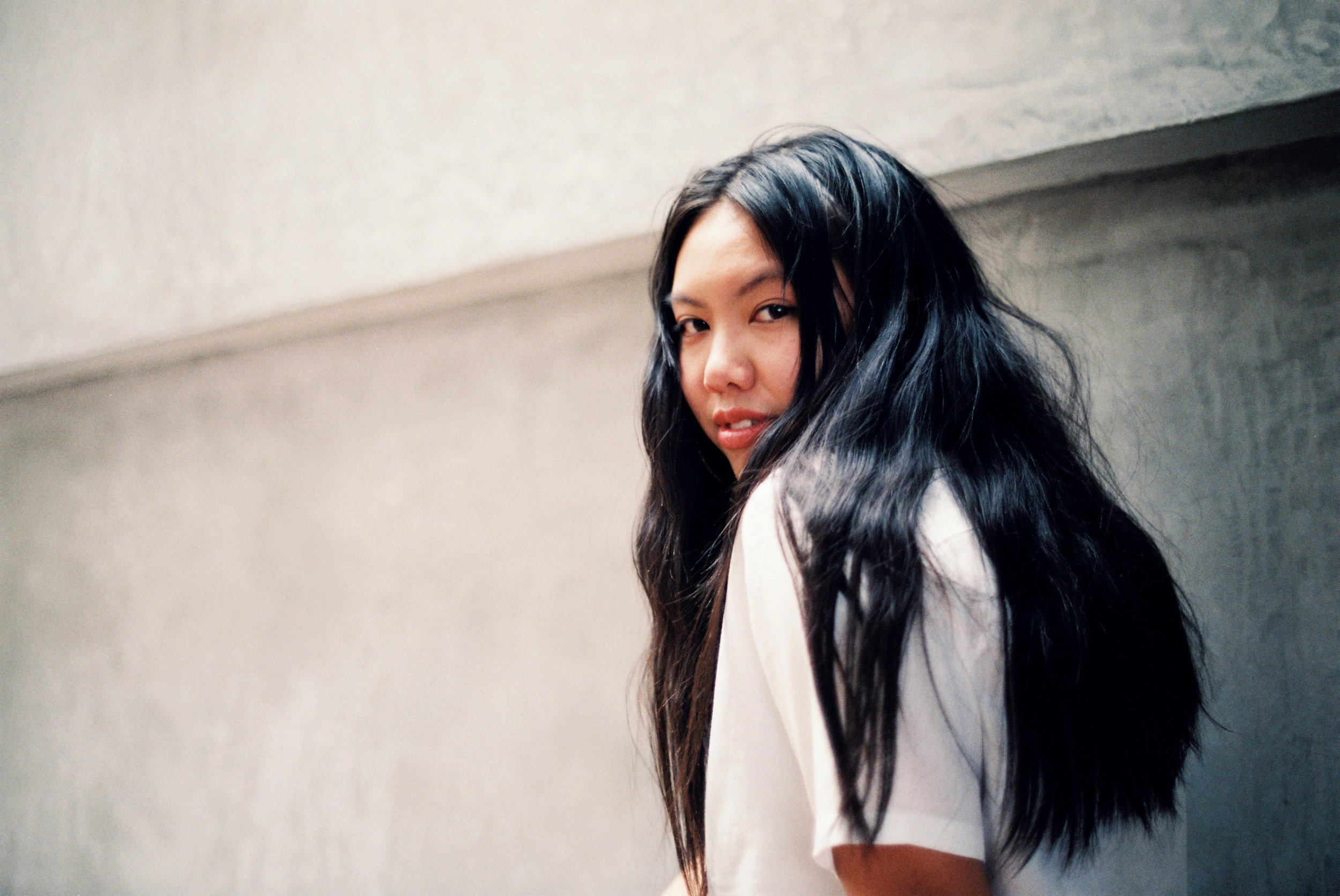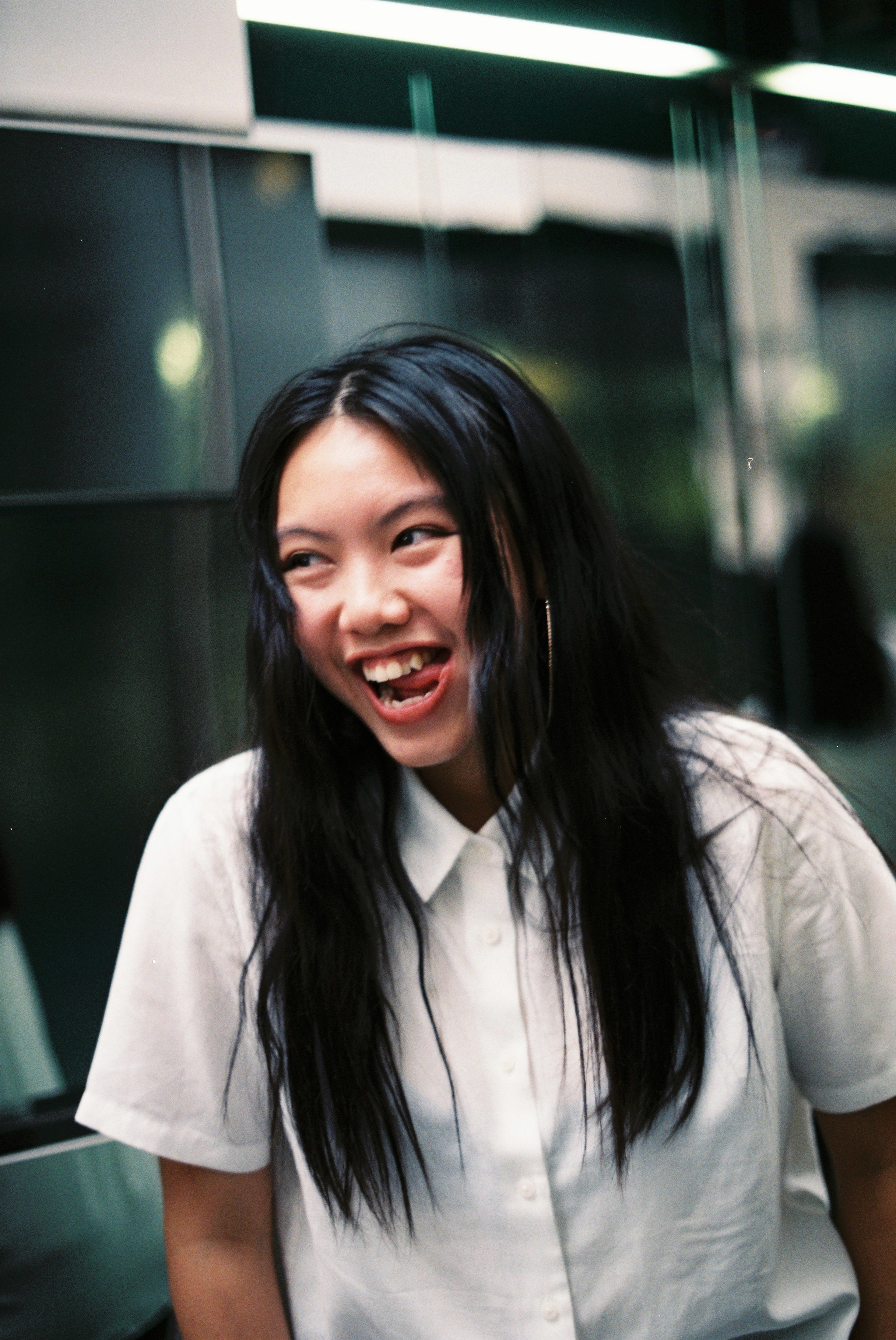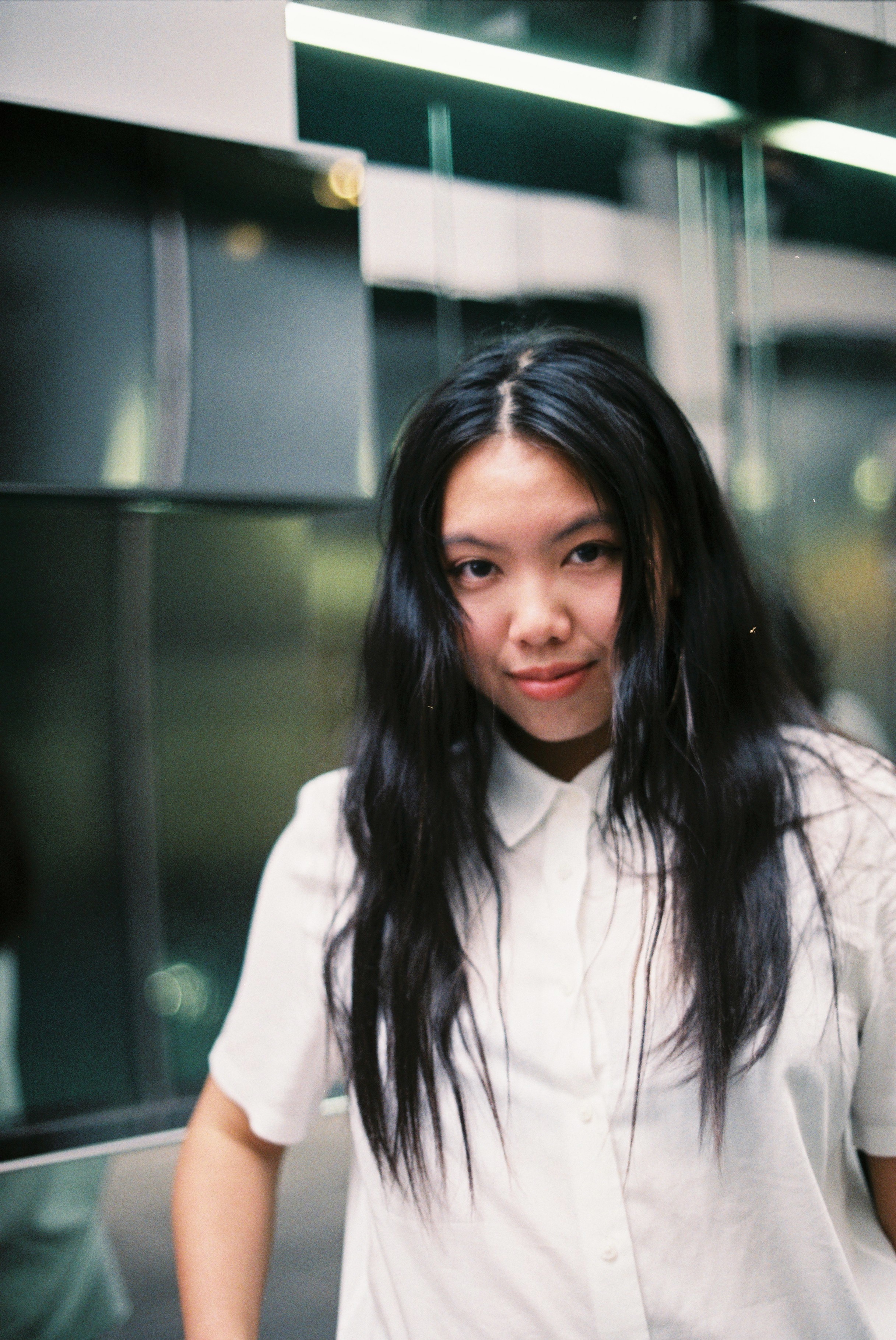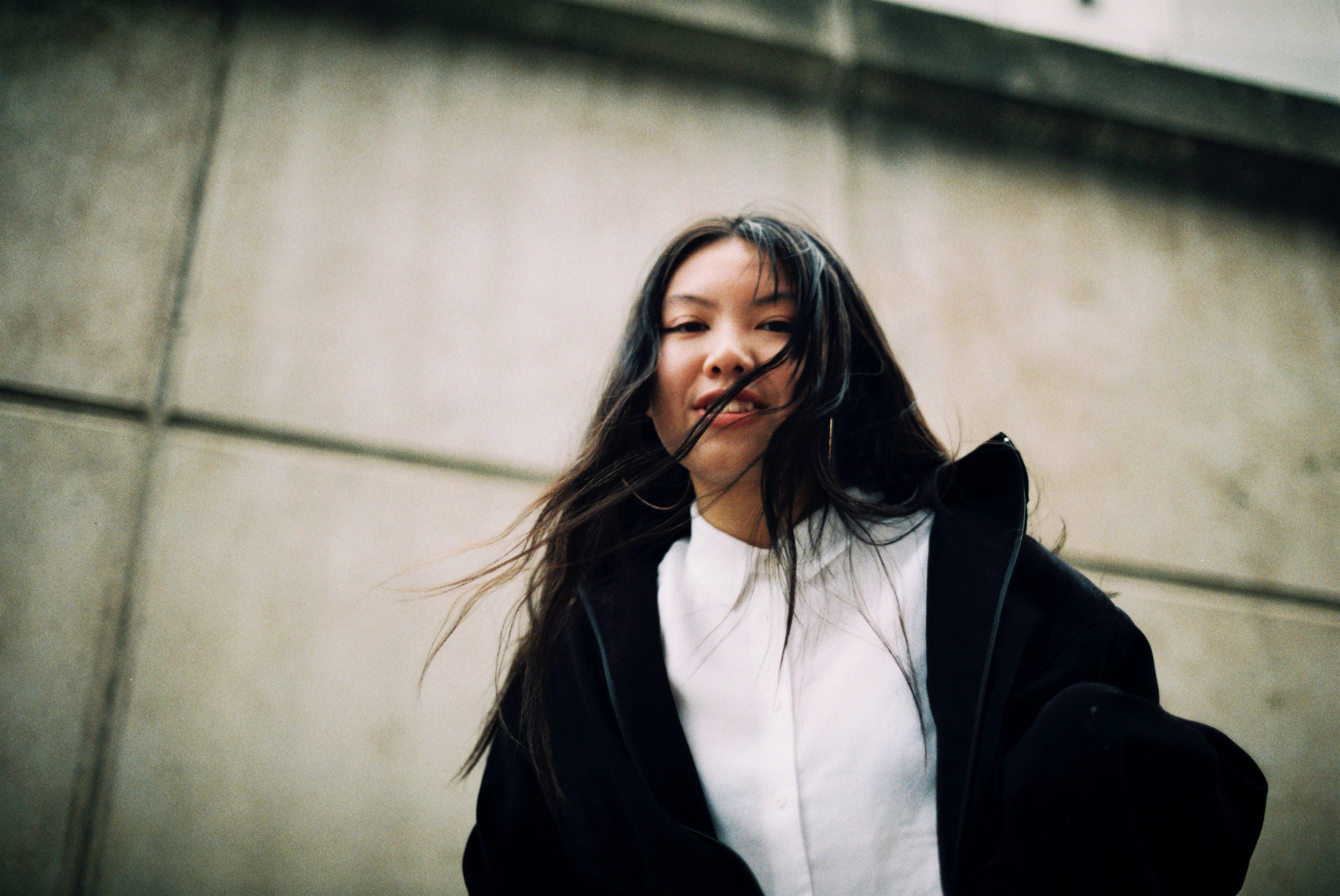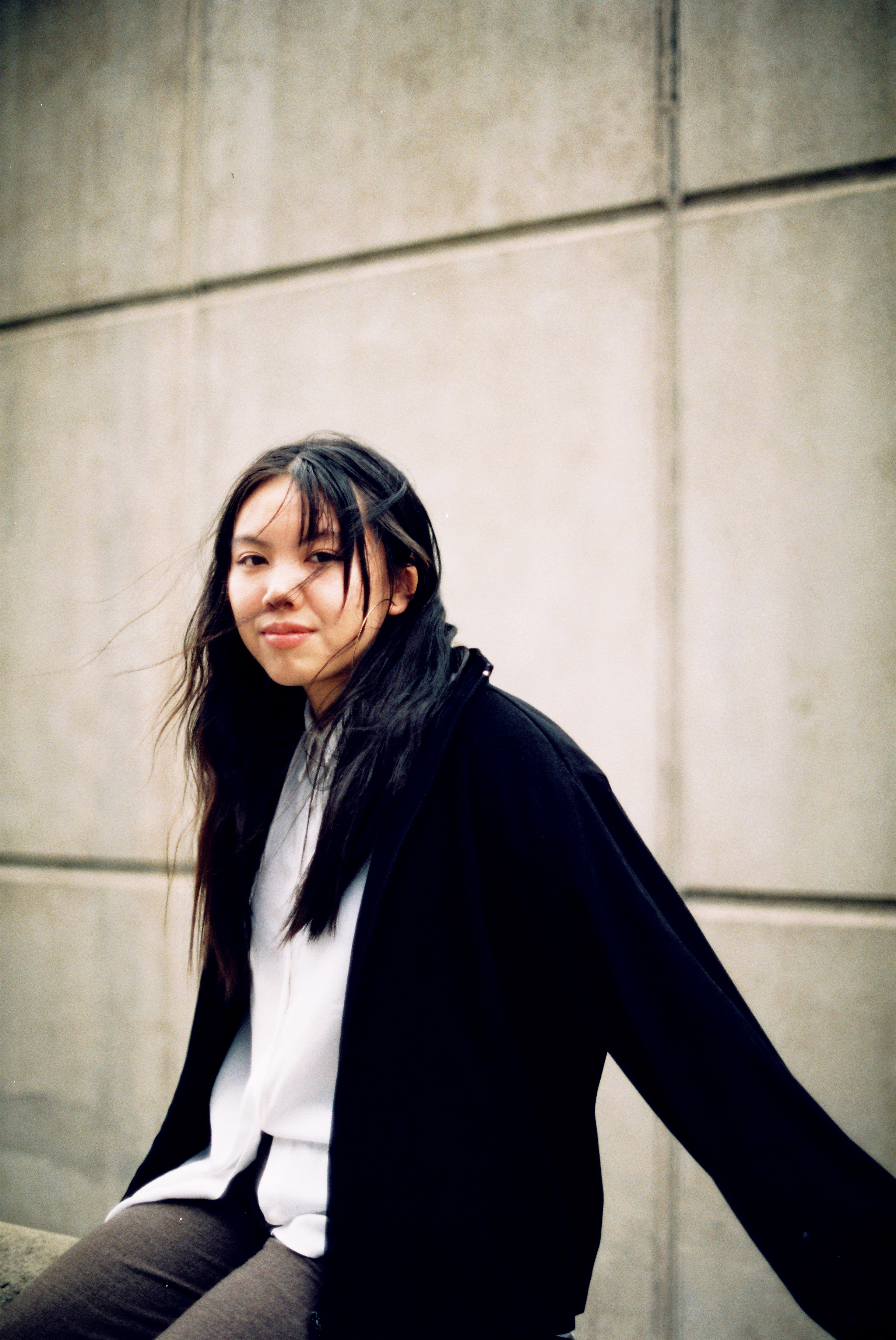Interview #67 — Jamie Marina Lau
Interview by Minna Featherstone
Jamie Marina Lau is a writer and artist. Her first novel, ‘Pink Mountain on Locust Island’, was published in April this year by Brow Books. Her music can be found under the pseudonym ZK king.
Jamie Marina Lau talked to Minna Featherstone about filling in the blanks, the curiosity of the music industry, and writing Pink Mountain on Locust Island.
Our pals at Brow Books have offered to give Liminal readers 20% off Pink Mountain on Locust Island! Use the code 'LIMINAL' here.
—
"I always just want to be creating from what I see or hear or am learning about, and I find it an interesting way to document and keep track of myself and everything going on around me."
—
How do you balance creating and being seen/heard?
I’m still in the very early stages of it. I think I’m naturally quite a private person, but creatively I’m impulsive, so for me it’s about making sure I’m confident in what I’m making and why I’m making it before I even begin to think about how to embody it. I always just want to be creating from what I see or hear or am learning about, and I find it an interesting way to document and keep track of myself and everything going on around me. The things I created in a certain time of my life will inform what I believed and found important then, but I’ll be growing. In that sense, my personal experiences are somewhere in both my music and writing but never the immediate thing and sometimes it’s drawing from a lot of nostalgia.
Do you often remember your dreams?
I do as soon as I wake up but then I never write them down.
In Pink Mountain on Locust Island, and love the way you paint everyday nuance so vividly. How do you feel when writing, and do you wish for people to connect with that in the same way?
Thank you, I’m always trying to put myself in an interrogative state of mind when I’m writing. I love researching down to the really mundane aspects of a scene. Often when I’m writing I’m reading articles as well as fiction, but I’m also listening to music and watching something at the same time, often repeating it too. This was definitely the way I wrote Pink Mountain—with all those browsers open. For Pink Mountain, I’m hoping that because it’s such a book based on experiencing claustrophobia, contradictions and odd parallelisms, that that tight space of mind really does exist when you’re reading it.
Where do you find confidence to begin a project?
It always starts with research for me. When I become really overly interested in something, that’s probably when I’ll start.
What sounds like home? Is this reflected in the music you make as ZK King?
Yeah I grew up on really long car trips everywhere—we drove heaps of places instead of flying there. So it was always my parent’s CDs mixed with stuff me and my brother listened to on our iPods: so a blend of Canto-pop, R’n’B, jazz, hip hop, pop ballads and 80’s and 90’s music over and over again. When I started doing ZK stuff, I wanted to produce the kind of music that made me feel that nostalgia. I also found mimicking movie soundtracks and sounds and moods really cool and therapeutic too.
Dev Hynes really influenced the way I saw the production side of music as storytelling—in a TED talk where he described creating his scores like creating a ‘palette’ and then ‘filling in the blanks’. It was the same way I wrote, like whenever I wrote stories I tried to fill in spaces where the reader wouldn’t think there was a space. I found producing the instrumental way more comfortable in this light. When lyricism was brought into it I found it hard to see the balance of subtlety in imagery and feeling, compared to when I just produced and wrote fiction. I’m exploring now how different writing can be depending on its timespan, what kind of space and context the listener or reader is digesting it in, and knowing how to control that and make the best out of that.
"Literature and music deal with honesty, truth and fact in such different ways, and it’s cool to challenge that in a process of balancing and paralleling them."
Do your creative processes intersect?
I’ve never wanted to box myself in, I’ve always wanted to try all forms of writing and telling stories, but it’s strange having two modes right now that deal specifically with fiction and non-fiction very differently—in that sense they’re difficult to merge. In the end I try not to think about the implications of the two as mediums and really just try to write what I’m interested in at the time, what I’m seeing and what I observe. Since starting both in a serious kind of way, I’ll have them going at the same time, and I just try different things depending on how I’m feeling.
In the more literal sense of intersection, I’ll be skim reading books and watching films when I’m writing lyrics and then I’ll always be listening to something when I’m trying to write fiction or poetry. I feel like I’m so distracted all the time but having one paired with the other gives me an interesting blend of the different ways I can be honest and show truth in my work. Literature and music deal with honesty, truth and fact in such different ways, and it’s cool to challenge that in a process of balancing and paralleling them.
"I was always hyper-aware of what made me not belong."
Does creating feel like work? And should it?
It does on and off. That attitude of trying to make your work relevant to people’s experience and values over time is what’s challenging about creating in anticipation of publishing in an age where publishing seems a lot quicker. Sometimes that understanding and curiosity comes more naturally than other times and that’s okay because I think that’s just your brain telling you to switch off and come back to it. It’s a matter of what I’ll be doing on a day to day basis, how focused I am. I think it’s necessary to keep renewing your process as it grows and the situation, people and space around you changes. It should feel like work in the sense that you have routine and purpose for sure, but it should always be exciting or you should always be learning in it.
How does your experience of growing up Asian-Australian shape your idea of belonging?
I was always hyper-aware of what made me not belong. And what wasn’t healthy was the mindset that I felt like I had to justify myself, make myself into what I thought was ‘normal’ in order to be comfortable. For me, reading and writing was something that offset my bilingualism; the skill of ‘English’ was used as proof that I was as much part of my Western society as all the people I went to school with and who lived in my area. In retrospect that’s a really sad way of allowing yourself to belong: consciously losing the skill of a language, or memory or culture to prove worth in a society.
Allowing yourself to belong is something that’s informed by every element of the environment around you: social media, television, mentors and the people around you. Belonging became so much about ‘what not to be’ and ‘how not to be’ and that really hinders growth and mental health and never really equates to a true sense of ‘belonging’ in the end. I find it really important now to undo those steps I took to ‘normalise’ myself and understand how ‘belonging’ is never really a stable thing anyway.
What’s your take on increasing diversity in the Australian music scene as a producer and musician?
The music scene right now is cool cos it’s actively curious about a diversity of experiences and identities. Because music used to be so much less accessible, it seemed harder for underrepresented people to get in because they weren’t able to identify or see representation of themselves in what got publicised. Platforms like Soundcloud have made it easier for artists to connect with listeners and each other, like I met my whole band there. I’ve linked with so many other artists and producers that I never would’ve even known about if they didn’t self-release and it’s cool to see that the control they have on those platforms results in so much confidence and self-assurance, other than being tokenized or moulded into something else—it gives them the space to push for more inclusivity as well .
How do you express or celebrate your cultural influences day to day?
I’ve started practicing my Chinese handwriting a bit every day, I also have all this jade I never used to wear but now I wear all the time.
Do you have any advice for emerging writers or musicians?
Read and listen to everything. Find how you write best, and not put so much pressure on yourself to constantly be creating or absorbing stuff to create with. Plus, allow yourself to share with people you think can give you honest and brutal feedback but only where you feel comfortable.
Who are you inspired by?
I’ve always been inspired by the creative people most immediately around me. My friends around me that are writing, producing music, starting up magazines, studying all different things, having their own music labels. The common thing is that they’re all not afraid to change up or start over. This includes my parents too; they’ve been in so many different places and situations and always allow themselves to change direction and try new things.
What are you reading?
Beloved by Toni Morrison.
What are you listening to?
Charlotte Dos Santos, Standing on the Corner, Raveena and Brent Faiyaz right now. I’ll always have Zion T., Crush, Brandy, Frank and Syd for comfort. When I write I’ll be listening to the craziest shit: Sun Ra, Mary Lou Williams, Les Sins, Blood Orange, Himiko Kikuchi.
How do you practice self-care?
Remembering sleep, sipping warm water, taking care of my skin, watching anime and Nathan for You, eating Korean food.
What does being Asian-Australian mean to you?
Being thankful but also aware. Being thankful about the opportunity to be in conversation with each other and the opportunity to learn from so many different kinds of experiences but also being able to challenge what’s normalised too.
Our pals at Brow Books have offered to give Liminal readers
20% off Pink Mountain on Locust Island. Use the code 'LIMINAL' here.
Interview by Minna Featherstone
Photographs by Leah Jing McIntosh

